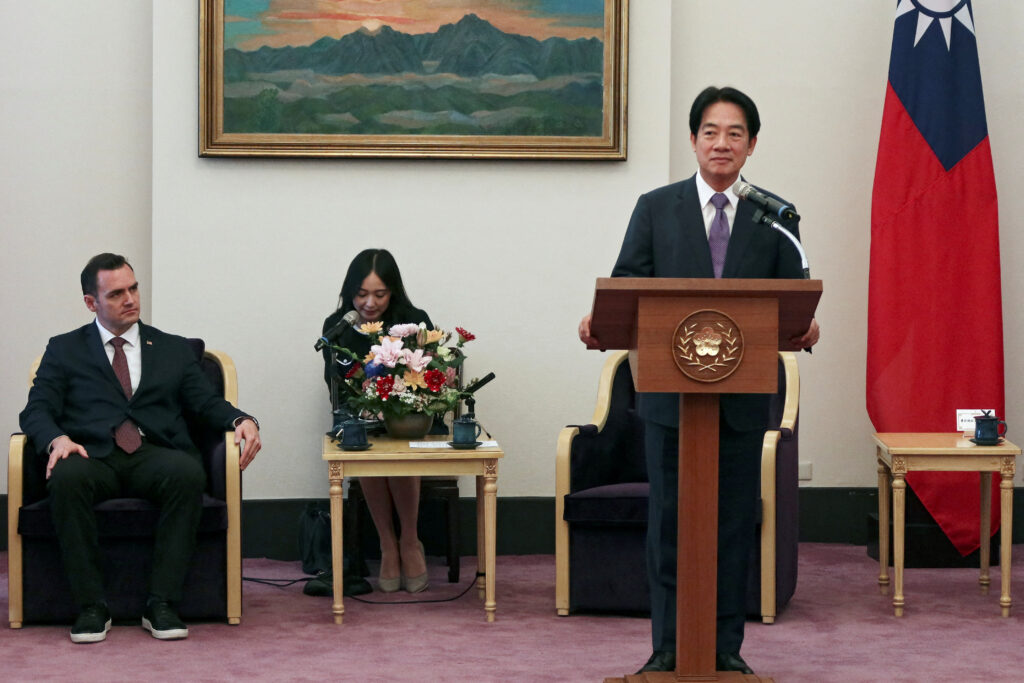On 13 January 2024, Taiwan conducted its Presidential and Legislative Yuan elections. The elections, especially the presidential election, were seen as a watershed event amid increasing global attention on tensions in the Taiwan Strait and Taiwan’s positioning as a key battleground in United States–China strategic competition.
Election night delivered a Democratic Progressive Party (DPP) victory in the presidential election. The DPP candidate, Lai Ching-te, won with 40.1 per cent of total votes, coming ahead of the Kuomintang (KMT) and the Taiwan People’s Party (TPP). But the election cannot be chalked up as a success for the DPP as despite winning the presidency, the party lost its control of the Legislative Yuan.
In the legislative election, the KMT emerged as the largest party with 52 seats ahead of the DPP’s 51. With two KMT-leaning independents also winning seats, the KMT essentially controls 54 of the 113 seats. The TPP emerged from the legislative election as the kingmaker, controlling the eight seats that either the DPP or KMT require for a legislative majority.
Arguably, the electoral results were disappointing for the two main parties. The DPP became the first party in Taiwan’s history to win three consecutive presidential elections, but they lost control of the legislature that they had held since 2016. The KMT managed to prevent a DPP-controlled Legislative Yuan but failed to win the presidency for a third straight election and failed to obtain a clear legislative majority.
Yet for the island’s regional neighbours, this election result was positive. This is especially so for ASEAN member states, for whom the election results were a near-ideal scenario.
Leading up to the election, there were fears that a DPP victory would lead to further deterioration in the already-fraught cross-Strait tensions. Under incumbent President Tsai Ing-wen, Taiwan had pursued deeper ties with the United States and insisted on the autonomy of the island. This led China to increase its pressure on Taiwan — cutting contact with the Tsai administration and increasing the number of military exercises in the waters and airspace near Taiwan.
A Lai victory was seen as a possible trigger for China, given that Lai has been vocally more pro-independence than his predecessor. ASEAN has long been wary of conflict breaking out in the Taiwan Strait, often advocating caution and restraint. This is unsurprising given any conflict in the Strait will have a ripple effect on the regional stability of Southeast Asia, especially given the Philippines’ role as a pseudo US military base under the updated Enhanced Defense Cooperation Agreement.
There is significant fear within ASEAN that a Taiwan conflict will destabilise the region. This would affect the sea lines of communication that ASEAN depends on, given how the Taiwan Strait flows into the South China Sea — where an estimated 21 per cent of global trade passes through. Of the top five countries that depend on South China Sea trade routes, three of them are ASEAN nations. There is a deep fear within the Southeast Asia region that a conflict would result in ASEAN states having to choose to align themselves with either the United States or China.
Respondents to 2023’s The State of Southeast Asia survey by the ISEAS-Yusof Institute indicated that should conflict erupt in Taiwan, their countries’ forced alignment with Taiwan or China was their second most pressing concern after the destabilisation of the region.
ASEAN has taken great pains to carve out a space in which it can protect ASEAN centrality and not pick sides, even as its individual member states may lean towards the United States or China. A Taiwan conflict would likely be the biggest challenge to ASEAN’s existence and relevance, as any member state’s choice to side with either superpower could conceivably lead to ASEAN’s dissolution.
ASEAN states do not want to be forced to choose a superpower because the economic and geopolitical significance of that choice will be momentous. China is ASEAN’s largest trading partner, but the United States is a key contributor to the region’s security.
The results of Taiwan’s 2024 elections are pleasing to ASEAN policymakers. Lai’s ability to pursue his policies will be hamstrung by the DPP lacking a legislative majority. The TPP, which hold the deciding votes in the Yuan and have previously campaigned on not rocking the boat with China, are unlikely to side with the DPP if Lai pursues a foreign policy antagonistic towards China. The DPP’s reliance on TPP support to secure a legislative majority will likely force Lai to maintain the status quo to garner support for domestic policies he wants to implement.
If Lai decides to maintain the status quo in his approach to China, this could temper China’s desire to increase military pressure on the island. Maintaining the status quo reduces the risk of tensions in the Taiwan Strait blowing over, easing a major area of concern for ASEAN.
Orson Tan is Senior Research Fellow at the Institute for Indo-Pacific Affairs and holds a PhD in Political Science from the University of Canterbury in Christchurch, New Zealand. He specialises in identity politics, ethno-nationalism, regional security and comparative politics in the Indo-Pacific.


The Democratic Progressive Party's (DPP) Lai Ching-te won the party a third consecutive presidential victory in Taiwan's 2024 elections. But the victory was soured by the DPP losing its majority in the Legislative Yuan. For ASEAN members states and Taiwan’s neighbours, the DPP’s presidential win and legislature loss was the ideal scenario because it could defuse tensions in the Taiwan Strait. Lai might have to curb his pro-independence stance and advocate for the status quo in order to secure a legislative majority.